The new Bentley Continental GT will represent “a paradigm shift in driving performance” over its predecessor, according to engineering boss Rolf Frech.
Autocar has now driven the new Bentley Continental GT. Click here for the first drive
The grand tourer, which has made its public debut at the Frankfurt motor show, has been created to “set a benchmark for all GTs”, said Frech, who added that he believes “this [car] redefines luxury driving again”.
Bentley hopes the new version of its most popular model — which is even expected to outsell the hugely successful Bentley Bentayga SUV — will appeal to both loyal and new customers and be “even more agile without compromising luxury”, helped by a chassis, suspension, W12 engine and dual-clutch eight-speed gearbox that are all new.
The Crewe-based car maker’s intention is to
 extend the Continental GT’s appeal to those buyers who might traditionally choose
 a Porsche for its handling qualities. The design of the third-generation Continental has taken inspiration from the EXP 10 Speed 6 concept car shown at the Geneva motor show in 2015. Frech said the style remains “clearly Bentley and Continental”.
The new car is longer than the outgoing model, with the front wheels 135mm further forward, which in turn has allowed the bonnet to be extended and the nose to be lowered. The wheelbase has increased by 110mm to 2856mm. The model is 25mm wider than the current car. It is 1954mm wide, 1392mm tall and 4805mm long.
The shorter front overhang also means improved weight distribution. With two adults on board and light luggage — which Bentley deems “typical grand touring occupancy” — it has changed from 56:44, front to rear, to 53:47. The new Continental’s unladen weight distribution is 55:45 compared with 58:42 previously.
While the front retains 
the muscular look of the second-generation model, the rear design is more refined. This has been achieved by so-called ‘superforming’, a precision technique that heats aluminium panels to 500deg C, allowing more defined lines to be created. The Continental
 is the first production car to have an entire body side made via the superforming process, Bentley claims.

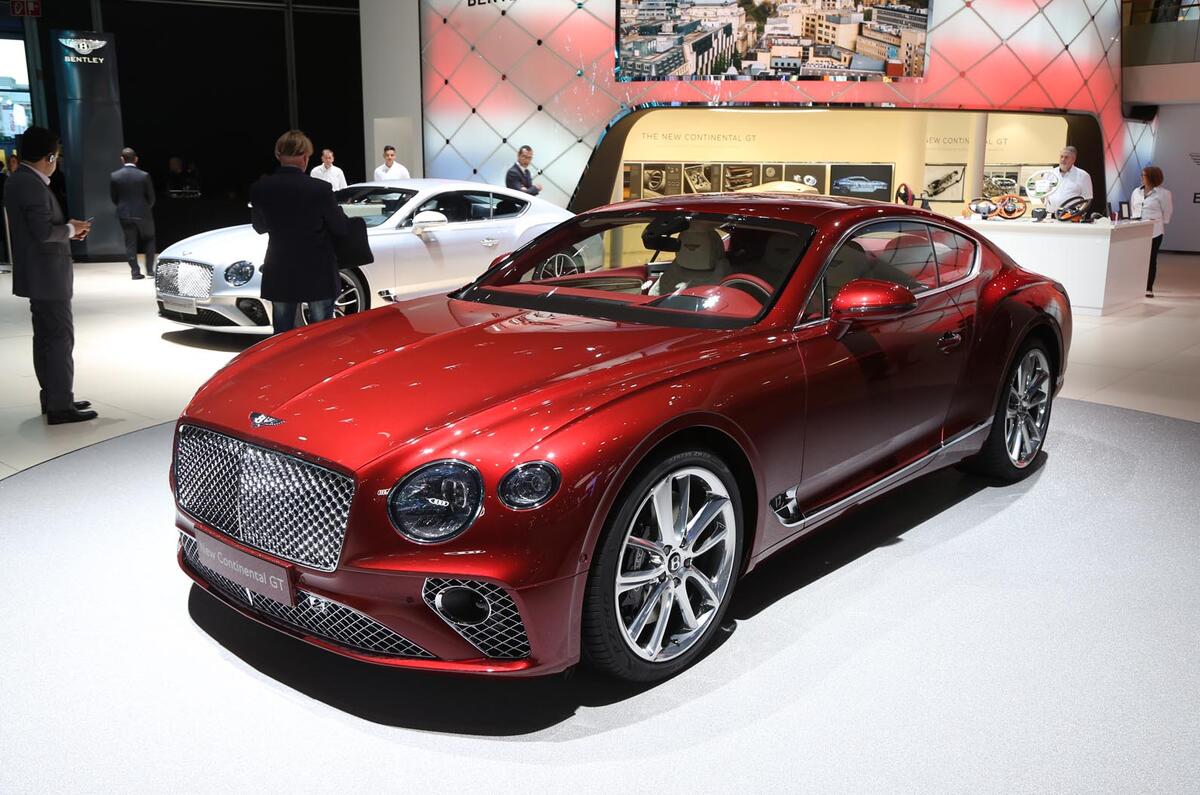





































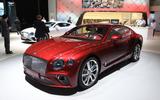







































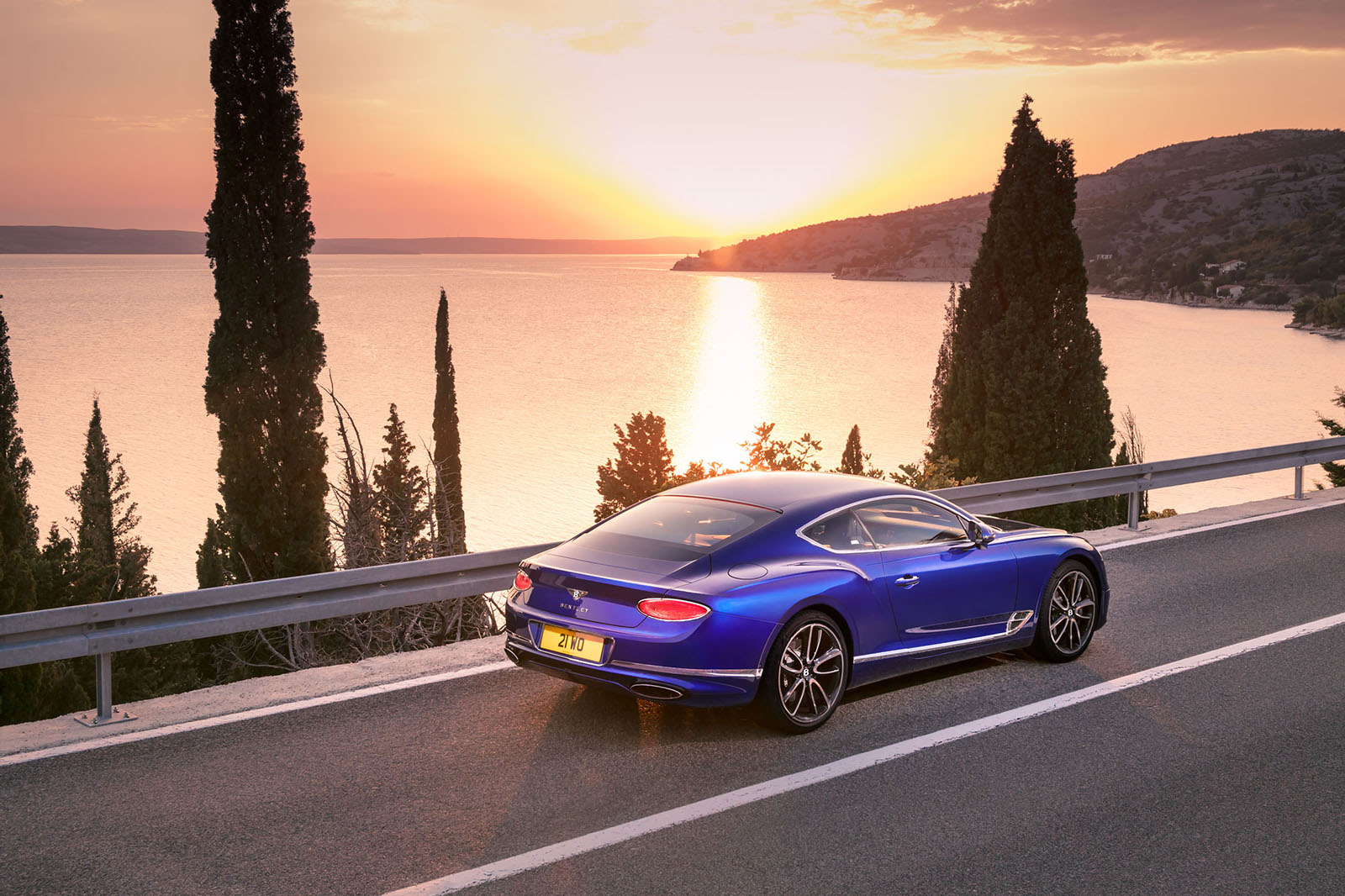
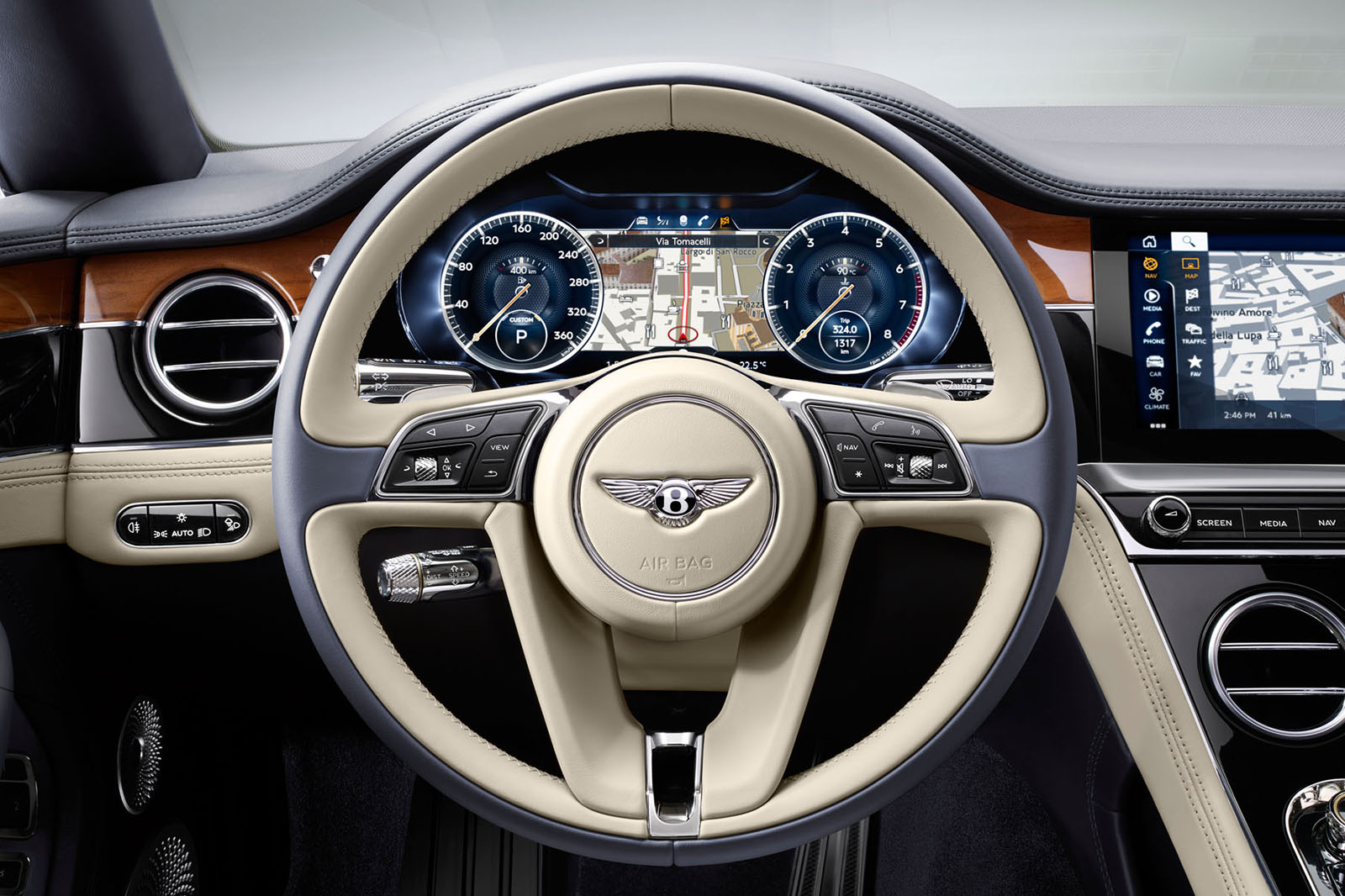
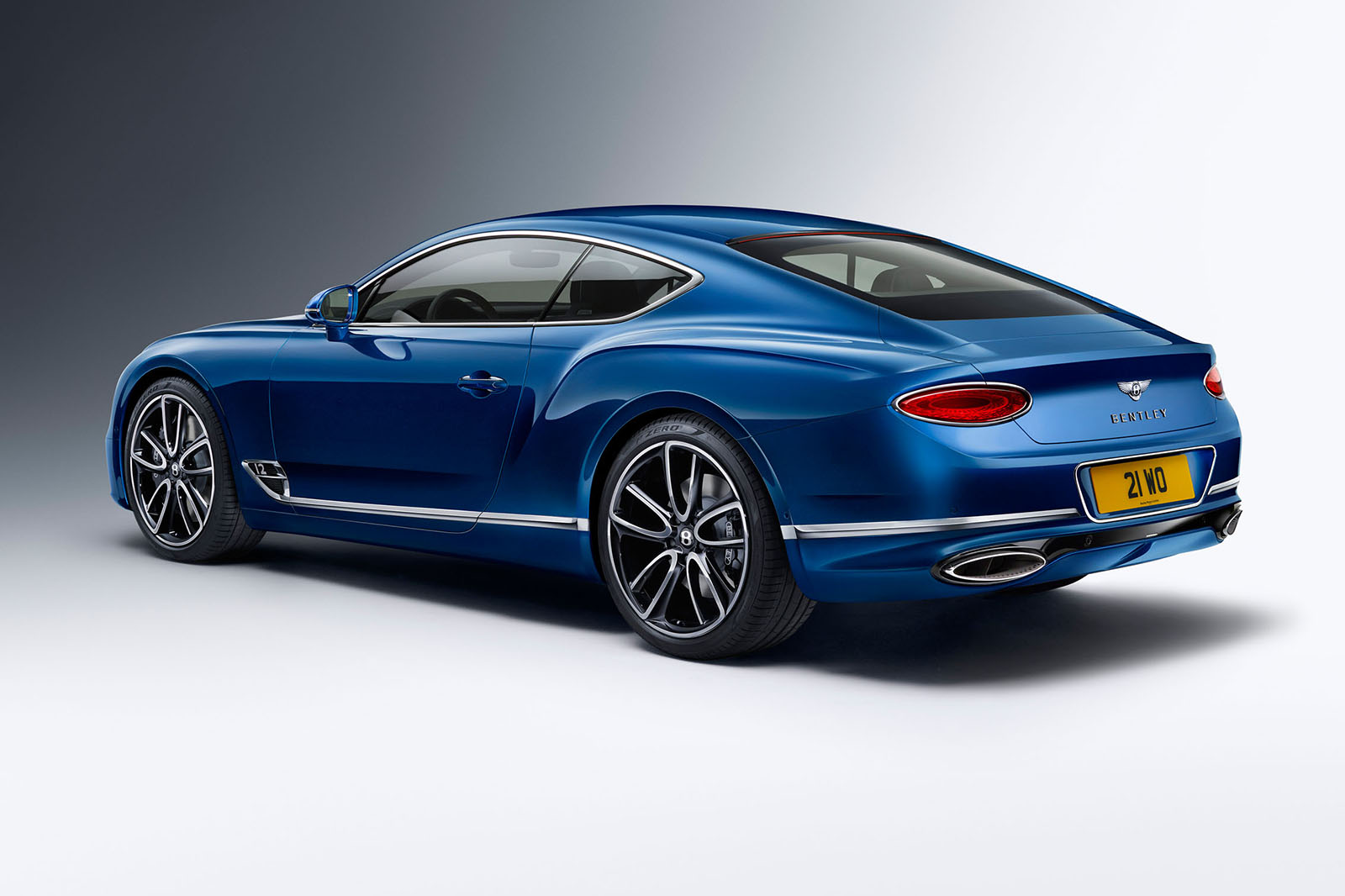
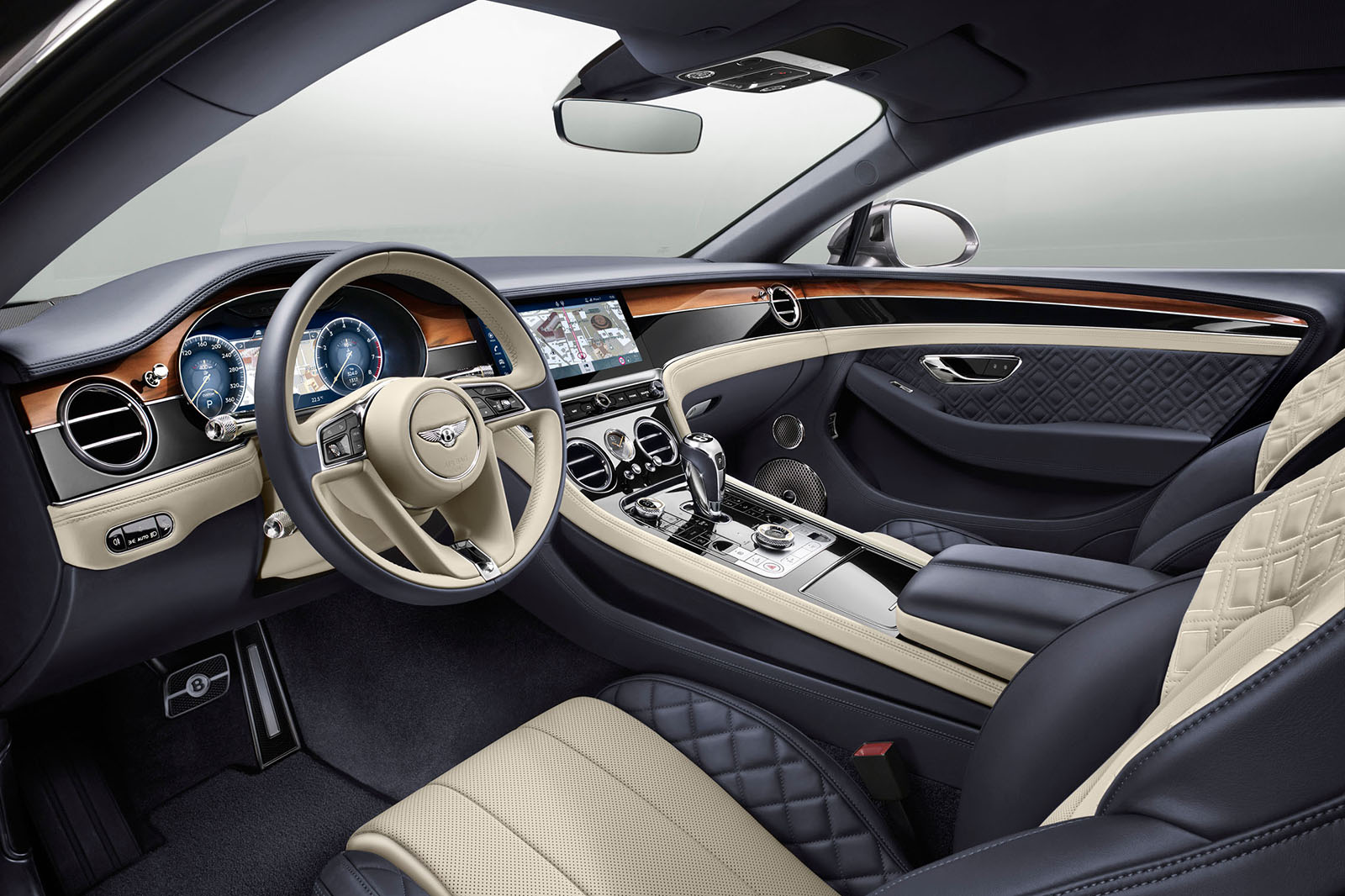



Join the debate
Add your comment
The rear looks too puny -
The rear looks too puny - almost Audi A7, not authoritative enough - taller light clusters would do the trick, otherwise fabulous.
But I must repeat, from the rear it needs to say King Of The Road more clearly.
rear three-quarters
... I actually found the rear three-quarter view the most appealing, my thoughts straight away was A7 too!
The side profile to the rear is Aston Martin meets steroid fuelled bodykit, the frontal aspects of the "German" Bentleys have always put me off, headlights in the wrong place, too "boss-eyed" for my liking.
Wouldn't say no to one however, unless I was offered an Aston instead :)
Feel the same about the RRs too, a very heavy-handed, slab-sided interpretation of classic"Britishness", I cannot understand what is going on with the Wraith's rear pillars! (Far too heavy looking - not at all graceful)
God help us if Daimler-Benz take a closer interest in A-M, look forward to Autocar road testing the Lagonda Panzer in a few years time!
Yes
I am not a fan of that rear, but I'd gladly drive this Auto on a daily basis.
Lovely
Very nice - it's sleeker and a definite improvement on the current model (and that SUV horror show). Love the interior too. Only the radiator grill looks a bit unfinished - and ridiculously huge.
It does look awfully wide though - surely it can't be much fun piloting something that wide through European cities and backroads.